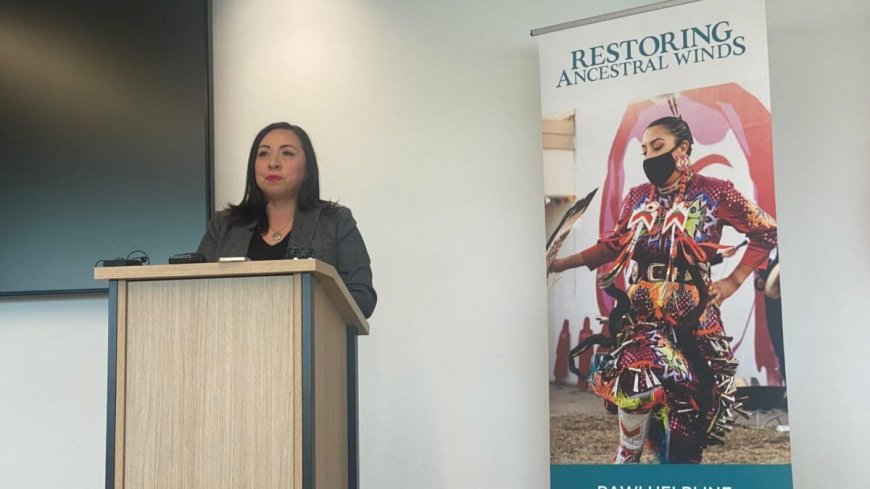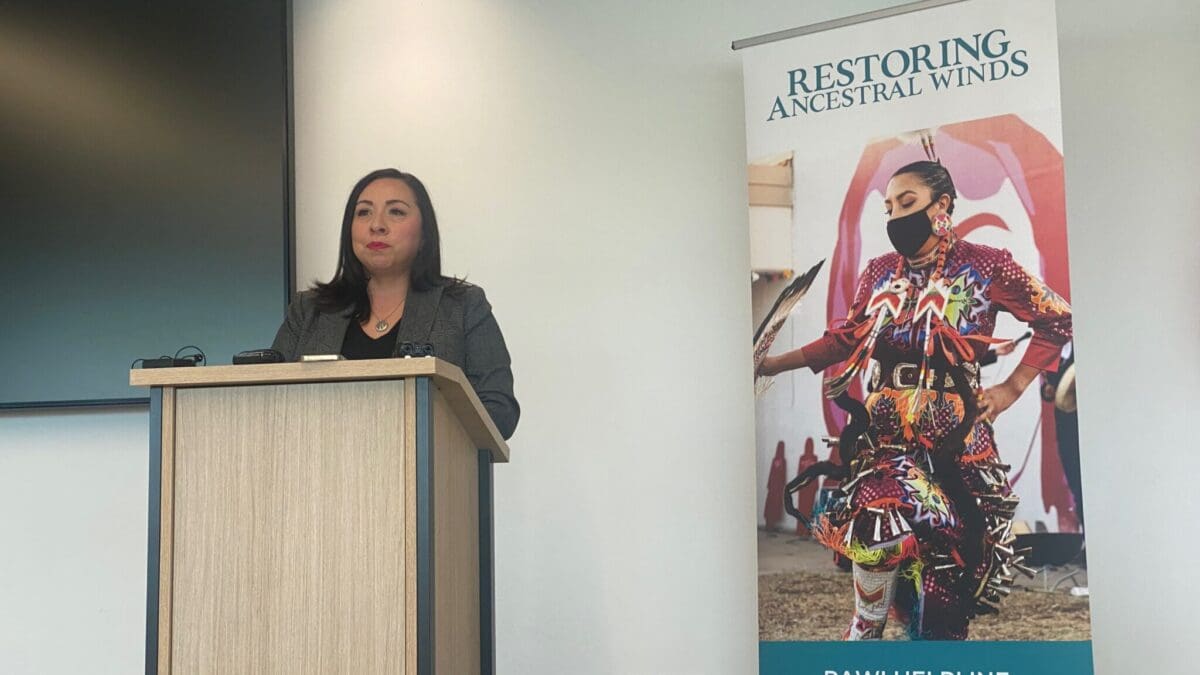‘Historic’ domestic violence and sexual assault resource for Native Americans launches in Utah – TownLift, Park City News
‘Historic’ domestic violence and sexual assault resource for Native Americans launches in Utah TownLift

Utah Launches First Domestic Violence and Sexual Assault Hotline for Native Americans
By: Kyle Dunphey, Utah News Dispatch
 House Minority Leader Angela Romero, D-Salt Lake City, speaks during a news conference about a domestic violence and sexual assault hotline for Native Americans in Taylorsville, Utah on Monday, April 8, 2024 Photo: Kyle Dunphey // Utah News Dispatch
House Minority Leader Angela Romero, D-Salt Lake City, speaks during a news conference about a domestic violence and sexual assault hotline for Native Americans in Taylorsville, Utah on Monday, April 8, 2024 Photo: Kyle Dunphey // Utah News Dispatch
Utah has taken a significant step towards expanding access to its tribal communities by launching the state’s first domestic violence and sexual assault hotline specifically tailored to Native Americans. This initiative is considered “historic” by advocates and aligns with the Sustainable Development Goals (SDGs) set by the United Nations.
- The hotline received two calls within hours of going live.
- The hotline is free and confidential, providing support to Native people living within Utah’s borders.
- Native Americans experience violence at rates far higher than the national average.
- Nearly 85% of American Indian and Alaska Native women, as well as 81% of men in those groups, will experience violence at some point in their life.
- Rates of sexual assault and rape are about 3.5 times higher among Native Americans.
- Native American women are more likely to need services related to domestic violence or sexual assault, but less likely to have access.
This hotline, with the number 1-833-NTV-HEAL (1-833-688-4325), will be staffed Monday through Friday from 8 a.m. to 4:30 p.m. Calls outside of these hours will be redirected to the national sexual assault and domestic violence resource for Native people, StrongHearts Native Helpline.
The focus on a Native American-specific hotline is crucial in providing culturally competent support to victims. Many Native communities do not report abuse and domestic violence due to a lack of trust in law enforcement. By having therapists who understand the communities’ cultural backgrounds and historical trauma, victims will feel more comfortable seeking help.
Utah House Minority Leader Angela Romero, D-Salt Lake City, emphasized the importance of improving the relationship between law enforcement and tribal communities to address the issue of violence. She also highlighted the need for increased funding for resources and organizations like Restoring Ancestral Winds to combat this epidemic.
Resources for sexual violence victims
- Utah’s 24-hour Sexual Violence Helpline: 1-801-736-4356
- National Sexual Assault Hotline: 1-800-656-4673
- Native American domestic violence and sexual assault line: 1-833-688-4325
- Rape Recovery Center: 801-467-7282
- Rape & Sexual Assault Crisis Line: 1-888-421-1100
- YWCA Survivor Services 24-hour crisis line: 1-801-537-8600
- University of Utah Center For Student Wellness Victim-Survivor Advocacy: 1-801-581-7776
- Linea de Apoyo de Violencia Sexual las 24-Horas de Utah: 1-801-924-0860
SDGs, Targets, and Indicators
1. Which SDGs are addressed or connected to the issues highlighted in the article?
- SDG 5: Gender Equality
- SDG 10: Reduced Inequalities
- SDG 16: Peace, Justice, and Strong Institutions
2. What specific targets under those SDGs can be identified based on the article’s content?
- SDG 5.2: Eliminate all forms of violence against all women and girls in the public and private spheres, including trafficking and sexual and other types of exploitation.
- SDG 10.2: By 2030, empower and promote the social, economic, and political inclusion of all, irrespective of age, sex, disability, race, ethnicity, origin, religion, or economic or other status.
- SDG 16.1: Significantly reduce all forms of violence and related death rates everywhere.
3. Are there any indicators mentioned or implied in the article that can be used to measure progress towards the identified targets?
- Number of calls received by the domestic violence and sexual assault hotline tailored to Native Americans in Utah.
- Percentage of Native Americans who have access to resources related to domestic violence or sexual assault.
- Level of trust between law enforcement and tribal communities.
Table: SDGs, Targets, and Indicators
| SDGs | Targets | Indicators |
|---|---|---|
| SDG 5: Gender Equality | Target 5.2: Eliminate all forms of violence against all women and girls in the public and private spheres, including trafficking and sexual and other types of exploitation. | Number of calls received by the domestic violence and sexual assault hotline tailored to Native Americans in Utah. |
| SDG 10: Reduced Inequalities | Target 10.2: By 2030, empower and promote the social, economic, and political inclusion of all, irrespective of age, sex, disability, race, ethnicity, origin, religion, or economic or other status. | Percentage of Native Americans who have access to resources related to domestic violence or sexual assault. |
| SDG 16: Peace, Justice, and Strong Institutions | Target 16.1: Significantly reduce all forms of violence and related death rates everywhere. | Level of trust between law enforcement and tribal communities. |
Behold! This splendid article springs forth from the wellspring of knowledge, shaped by a wondrous proprietary AI technology that delved into a vast ocean of data, illuminating the path towards the Sustainable Development Goals. Remember that all rights are reserved by SDG Investors LLC, empowering us to champion progress together.
Source: townlift.com

Join us, as fellow seekers of change, on a transformative journey at https://sdgtalks.ai/welcome, where you can become a member and actively contribute to shaping a brighter future.







